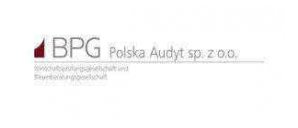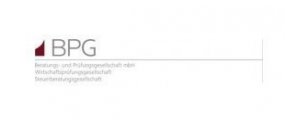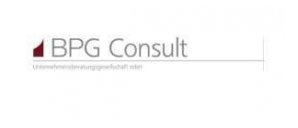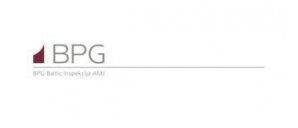
Standard Audit File
Standard Audit File - what changes will come into force from January 1, 2018?
With effect from 1 January 2018, the obligation to maintain an electronic VAT sales and purchases register and to submit the data as a Standard Audit File (SAF_VAT), will apply to all VAT payers, including micro-enterprises. This obligation is commonly known as fiscal e-control. What exactly can we expect in the coming year?
Standard Audit File – what are the reasons behind the changes that will enter into force from January 1, 2018?
Until now, the obligation to keep electronic VAT records has applied only to large (as of July 1, 2016) and small and medium-sized enterprises (as of January 1, 2017). However, as early as January 2018, the digitization of tax reporting is to encompass all VAT payers, including about 1.6 million micro-enterprises. The obligation to submit a SAF (Standard Audit File for Tax) is intended to improve the collection of taxes, thus combating the fraud committed by entrepreneurs in this respect.
The new tax control principles were discussed in detail during the conference entitled "Benefits for entrepreneurs from introducing SAF", which took place on October 4 this year at the Ministry of Finance. Paweł Cybulski, deputy finance minister and deputy head of KAS, gave these reasons in support of the changes to the scope of the Standard Audit File:
We want to constantly improve the situation of entrepreneurs and strengthen fair competition. This is also the purpose of extending the application of SAF to micro-firms. This will help them to eliminate dishonest contractors, organize records and limit the number of inspections by the tax authorities.
Standard Audit File – what is it?
Standard Audit File is created on the basis of information about the business operations of a given company over a specific period. It is used for the digital transfer of data to the Tax Office. In order to send data correctly, one should obtain a program that supports SAF - then the information can be sent directly from the financial and accounting system to the Tax Office.
Prior to the introduction of the Standard Audit File, all data was inserted by hand. The digitization of this procedure made it possible to quickly identify illegal transactions and thus the companies violating the tax laws.
SAF – types of files
Large, small and medium enterprises are required, by the 25th of a given month, to submit a SAF_VAT file that contains detailed records of VAT purchases and sales from the previous month. According to the new regulations in force from 1 January 2018, this file will also have to be submitted by micro-firms. It is created using the same information that is used to prepare a VAT declaration. In turn, as of 1 July 2018, micro-firms that do not pay VAT and VAT payers, will have to submit the following types of files at the request of the tax authorities:
- SAF VAT invoices,
- SAF Accounting books,
- SAF Bank statements,
- SAF Inventory,
- SAF Sale and purchase register,
- SAF Revenue register.
A list of currently available SAF files is available on the government web pages under the section "SAF structures" - it is worth following the information given there on an ongoing basis, as existing structures may be subject to modifications in the near future. According to an announcement of the Ministry of Finance, new structures will also be created, including SAF Receipt, which will in particular relate to the functioning of micro enterprises obliged to record all operations at the cash register.
Standard Audit File for micro-enterprises from 2018
According to art. 104 of the Freedom of Economic Activity Act, micro-enterprises include enterprises that, in at least one of the preceding two financial years, have met the following two conditions:
- have employed on average fewer than 10 employees (full-time equivalents, excluding persons on maternity or paternity leave), have achieved an annual net turnover not exceeding t
- the zloty equivalent of EUR 2 million from the sale of goods, goods and services, as well as financial operations or the total assets of the balance sheet prepared at the end of one of these years did not exceed the zloty equivalent of EUR 2 million.
Therefore, a micro-enterprise can, in principle, be defined as an entity that runs a sole proprietorship and employs less than 10 employees. If such an enterprise exceeds the above limit for the average annual employment in the preceding two years, it is classified as a Small business taxpayer, even if its turnover is lower than EUR 2 million.
The obligation to submit data in the form of SAF files will apply to micro-enterprises as follows:
- from 1 January 2018: VAT records (SAF_VAT file) submitted monthly without any request from the tax authority,
- from 1 July 2018: data for e-control (all SAF files) submitted at the request of the tax authority.
In connection with the upcoming changes, all enterprises, including micro-enterprises, will be required to send SAF files to the Tax Office. This process is called electronic tax control.
Reporting process for a Standard Audit File
Most financial and accounting programs that are currently used by enterprises are able to generate the SAF_VAT file as well as other SAF structures. The way they are prepared is automatic - all data entered into programs that relate to the business of the micro-enterprise are taken into account. Micro-enterprises will be required to submit the SAF_VAT file using the Ministry of Finance program and to deliver the remaining SAF files at the request of the tax office.
The use of the aforementioned program of the Ministry of Finance, and consequently – the transfer of SAF files, requires the enterprise to have a qualified signature or to create a free trusted profile (eGo). A trusted profile is a free tool that allows you to confirm your online identity. It can be set up via the Internet - using a bank account or a qualified certificate, as well as at a confirmation point - an office or bank (the application for establishing a trusted profile should be sent via the Internet and confirmed in person at the selected confirmation point).
The possibility of test upload of SAF_VAT file
It is possible to perform a test upload of SAF_VAT file now. The Ministry of Finance offers micro-enterprises assistance in this area. As underlined by the deputy finance minister, Paweł Cybulski:
We want micro-enterprises to learn how to upload a SAF file. Thanks to this, they will receive a faster tax refund - instead of 60 days it can be even 25 days. This applies to settlements for October, November and December 2017. They can prepare themselves in advance and check if their settlement is correct.
At the www.jpk.mf.gov.pl website you can find free tools for creating and sending a SAF_VAT file. Thanks to this, micro-enterprises can now learn how to prepare, sign and then send ready files to the tax authority.
What are the possible consequences of not submitting SAF_VAT?
Failure to submit a Standard Audit File on time may result in imposing tax and penal sanctions on the taxpayer. The penalty for a fiscal offense is a fine, the size of which ranges from 1/10 to 20 times the minimum wage. In 2017, the fine may be:
- from 200 zł to 4000 zł (in the case of a fine imposed on the basis of a ticket),
- from 200 zł to 20 000 zł (in the case of a fine imposed on the basis of a court order),
- from 200 zł to 40 000 zł (in the case of a fine imposed on the basis of a court judgment).
The amount of the fine is determined on the basis of the financial situation and family status of the perpetrator, as well as earning potential.
The amount of the fine in the case of a fiscal offense may vary from 10 to 720 x the daily rate. In 2017, the minimum daily rate is from PLN 66.66 to PLN 26 664 - it all depends on the family and financial situation, as well as the income level of the perpetrator. Currently, the penalty can be:
- from 666.60 zł to 5 332 800 zł – in the case of a court order,
- from 666.60 zł to 19 199 995,20 zł – in the case of a court judgment.
The introduction of Standard Audit Files enables the automatic verification of tax data, as well as faster performance of control activities, thus being a significant facilitation for the tax authorities. Standard Audit Files also have a number of benefits for the enterprises themselves, as they enable them to conduct internal audits to detect any irregularities in the books, which will also allow for the systematic monitoring of the financial situation of the company.
return










